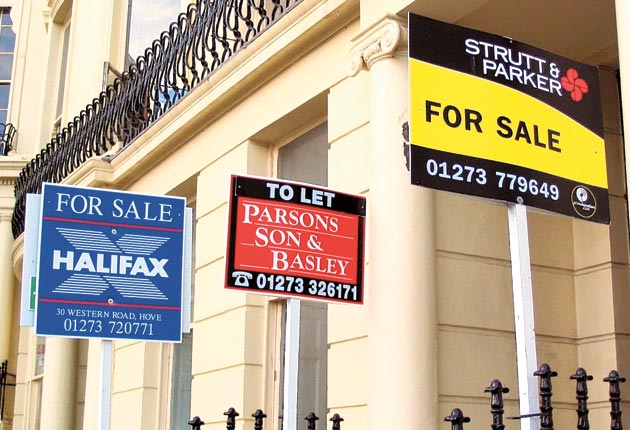Expect to still be paying off your mortgage in old age, homeowners warned
Covid compounds shrinking hopes of ever being payment free

One in five borrowers won’t have cleared their mortgage debt before retirement, as rising house prices and later first-time purchases push back the age Britons free themselves from housing costs.
Despite hopes to be clear of the monthly payments by the time we hit 60 – two years later than we anticipated this time last year – a growing number of homeowners don’t think they’ll be mortgage free until well into their 70s.
“Mortgages are like joint pain and noisy neighbours: nobody wants them to become a major feature of their retirement,” says Sarah Coles, personal finance analyst for Hargreaves Lansdown.
“Even if you snap up a property at the average age of 34, and take out a 25-year mortgage, it only takes a little bit of life to get in the way to leave you repaying well into retirement. If you end up dipping into your property equity, or face divorce in your 40s, you can push your final repayment date into your 60s.”
That doesn’t have to be the end of the world if you’ve saved for a generous pension, particularly if your mortgage has become much more modest over time.
The problems come if your pension can’t cover the costs and you’re relying on being able to work later in life or if you are one of the growing number of retired Brits living in rented accommodation.
The majority of those already aged 65 and over took their first step on the property ladder when prices were more affordable and at a younger age than first-time buyers saving today. And yet a quarter of those baby boomers are still paying housing costs, either with a mortgage, or because they are living in private- or social-rented accommodation.
The full state pension of £9,110 a year, which already falls some way short of the average annual spending for a one-person retired household of around £12,800 according to Just Group, simply isn’t designed to cover housing costs as well. As things stand, more than a quarter of the over 50s don’t have a private pension to bridge the gap SunLife has reported.
Perfect storm
Higher property prices mean we now take longer to save a big enough deposit and longer to earn enough to qualify for a mortgage. It’s one reason why the average age we buy our first property is 34.
Another is that more people are engaging in higher education. They start their working lives later and are already carrying debt when they do, all of which pushes a purchase further down the line.
To meet strict affordability criteria, buyers are also taking on longer mortgages, including 35 and 40-year mortgages, to spread the repayments.
Others have chosen lower interest only payments to keep a lid on their monthly costs. More than 80,000 interest-only mortgages came to an end in 2019 and another 40,000 come to an end this year.
Where there’s nothing in place to repay the outstanding debt, a whole new repayment mortgage of 25 years or more may be one of the few feasible options.
Life happens
All of which assumes repayments from then on go as planned. But if this year has reminded us of anything it is that the status quo rarely continues unhindered indefinitely.
Of those marrying since the 1990s, a quarter were divorced by their 10th anniversary. The average age to get divorced is 45, and starting again at this stage often means taking on a new mortgage.
“Each year we’ve seen unsecured borrowing rise, and despite repayments during lockdown, we’ve returned to borrowing again,” adds Coles. “More borrowing means more people needing to consolidate their debts by remortgaging.

“If you expect to repay your mortgage in retirement, it’s worth thinking how you can cut your risks. This might mean having a plan B, or taking steps today to protect yourself.”
Those steps could include straightforward measures such as overpaying where possible or remortgaging to a lower interest rate – especially in this climate of ultra low rates – so that more monthly payments go towards repaying the loan or working longer.
Other, riskier options could include paying off the loan from savings, investments or even a pension tax-free lump sum, downsizing or releasing equity.
Join our commenting forum
Join thought-provoking conversations, follow other Independent readers and see their replies
Comments
Bookmark popover
Removed from bookmarks